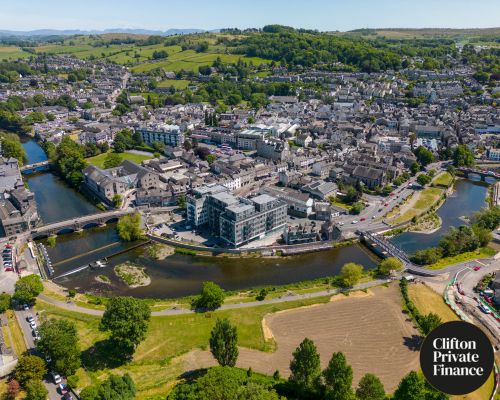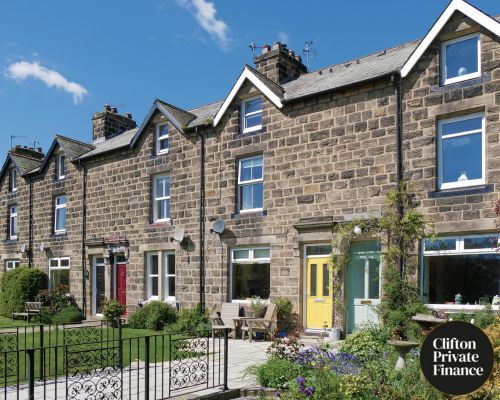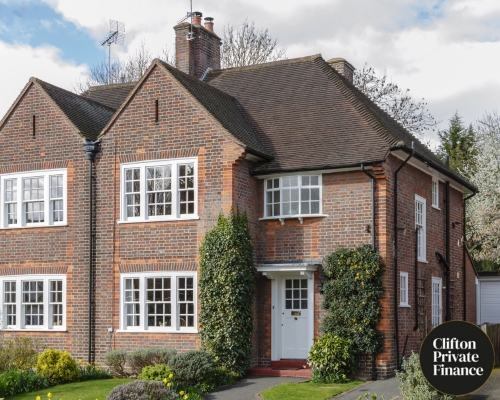Categories
How To Get Development Finance For Property In Manchester

From NOMA and Angel Meadows to Ancoats and Murray Mills, Spinningfields and across to Greengate, crane surveys and planning approvals show that the post-2008 development pause is now Green for Go.
The mood in the city is buoyant. Manchester developers don’t need Northern Powerhouse pronouncements to know that the push is on to provide much-needed housing and commercial premises infrastructure.
Strong demand
2018 saw the highest-ever level of take-up of city-centre office rental opportunities, and 2019 has been forecast to be another strong year.
Greater Manchester is forecast to grow at a rate of 14% over the next five years, according to Savills Research. That's well above the UK average of 11%.
The combined authority has the largest regional creative and digital clusters in the UK, contributing to a rate of job creation that could outpace growth in Berlin, Tokyo and Paris in the five years to 2020.
House prices jumped 8.8 per cent just in 2017, according to Savills Research analysis of Land Registry data. National property consultants JLL predict that Manchester property values will continue to rise by a further 22.8 per cent to 2022. Which compares impressively with a 10.3 per cent projected rise for London, and 16.5 per cent for the north-west in general.

Are we nearly there yet?
Manchester’s first directly-elected mayor, Andy Burnham, is proving a much-needed advocate for improved transport links for the city and the region.
The HS3 High Speed rail link is due to be completed around 2033. In July 2019 the UK government committed to getting the connecting cross-Pennine route underway, which will link Manchester to Leeds and Hull.
Meanwhile the strong Asian connection encouraged by Chinese president Xi Jinping’s visit in 2015 continues to lure overseas buyers. And Manchester’s universities build loyalty to the city year-on-year, with around half of graduates choosing to stay, according to the Higher Education Statistics Agency.
The power of football finance…
Manchester’s international sports branding provides a swag of money to fuel development. Gary Neville has fronted the multi-use development on Jackson’s Row in Deansgate. The 300 waterfront flats in New Islington are funded by Man City’s Abu Dhabi owners; they are the first wave of their decade-long plan to build 6,000 new homes in the north and east.

Room for smaller players
Reserve-team developers with similar ambitions but slightly smaller budgets, or a different property focus are still finding plenty of opportunities for work to be done.
There is already some talk of the possibility the market could be flooded with high-end developments, and the city council has expressed concern that the market is chasing affluent millennials.
They’re actively supporting projects providing low and mid-price housing, with the 754-home Meadow Side joint venture between the city council and developers Far East Consortium in Angel Meadows setting a pattern for the “Northern Gateway” that the council would like to see replicated.
FINANCE PROBLEMS TO OVERCOME
Accessing finance for unmortgageable properties...
If the property you need finance for is:
- derelict
- has structural issues
- doesn’t have a functioning bathroom or kitchen
- valued under £50,000
it will be defined as “unmortgageable” by high-street banks and mainstream lenders. They will not be willing to provide finance secured against it, and you will need access to alternative financers, some of whom will be broker-only.
Lack of track record…
You may be required to submit a portfolio of profitable property projects to establish your borrowing credentials.
High-street banks often have rigid lending criteria and may only consider applicants with a history of successful developments that meet their profitability requirements. Without the help of an experienced broker, if you’re not aware of a lender’s criteria at the outset you can waste valuable time in submitting applications that are never going to be approved.

Delays in accessing finance…
One of the biggest issues that developers face in approaching traditional lenders is how long the approval process takes. It’s not uncommon for high-street banks to take several weeks or even months to process an application.
Any delay in getting the finance can prove extremely costly on a development timeline, and impact on all your contractors’ commitments.
Losing control of project management…
Staged release of development finance funding can cause significant delays to a project, and sometimes even prevent progress.
Development projects can be worth less part-way through than they were before commencement, and lenders commonly want to be assured that their investment is protected by staged release of funds.
The requirement for inspection (and sometimes re-inspection) that specified work has been completed before each tranche of funding is released can take longer than anticipated.
In addition, developers can find themselves in a double-bind where their lender will only release funds after a specified piece of work has been completed, but they need the withheld funding in order to finish the work.
In these situations you may need short-term finance from another lender to achieve inspection sign-off and release the next stage of funding.
FUNDING SOLUTIONS FOR DEVELOPERS
A range of finance options have been developed by the market that can overcome these issues for you.
1 Bridging loan
Short-term finance is more expensive than standard mortgaging, but with a defined repayment vehicle in place it offers developers a quicker way to access development finance.
We work with lenders who can provide finance within as little as seven working days as a short-term solution to “bridge” the gap of any shortfall in funding.
Bespoke bridging loans can be tailored to specific purposes and lending terms, but they are commonly used for developments such as:
- purchase at auction
- buying commercial property
- land purchase
- conversion work
- self-build projects
- purchasing residential property
Bridging exit plans
Every bridging loan lender will require you to have a clear exit plan in place before providing finance. This may be the arrangement of a mortgage after essential works have been completed, the proceeds of the sale of finished houses or apartments, the lease of a finished commercial property or the sale of land.
Rolled-up interest
As a commercial developer you will have the choice of either servicing your bridging loan with monthly interest payments or easing cash-flow by rolling-up the interest to pay at the end of the term of finance.
The option to pay the interest at the end of the term enables you to use all of the loan on your development, repaying the entire amount upon execution of your exit plan.

Light refurbishment bridging loan
Usually with slightly lower interest rates, these are tailored for smaller development projects. There is no strict definition of a light refurbishment project, but usually it is one where:
- There is no change to the nature of the property
- Planning permission is not required
- Building regulations do not apply
Heavy refurbishment bridging loan
These are offered as finance for larger development projects, where the lender’s risk and administrative involvement is greater – consequently their interest rates are higher.
A Heavy Refurbishment bridging loan will be appropriate for projects where:
- The light refurbishment criteria do not apply
- Structural refurbishment is required
- The development costs more than 15% of the value of the property or land
Bridging loan calculator
Use our ready-reckoner to see how much finance you could secure for your Manchester development project:
2 Development finance
Development funding is commonly reserved for experienced property developers: lenders will usually require evidence of a proven track record of successful projects. But there are some lenders we work with who are happy to provide development finance to less experienced borrowers if your project satisfies other criteria.
Gross development value (GDV)
The estimated open-market value of your finished property or development is a key metric in development finance (along with development experience and your personal financial situation).
Most development finance lenders are comfortable with granting development loans up to 65% of the GDV, if they are satisfied with the project plans and financial projections.
Up to 100% development finance
A number of lenders in the development finance market are prepared to provide the entire funding for the purchase of property/land plus development costs to borrowers who qualify for development finance.
If the cost of servicing a 100% loan is not an issue this can be an extremely useful scale of funding for your project, allowing you to invest in other projects at the same time.
3 No-experience finance options
If you lack the necessary experience or assets to secure development finance, there are still other ways you might fund your development.

Joint venture partnership
We work with joint venture partners who are prepared to provide funding for projects in Manchester.
A joint venture brings together two or more developers to pool their resources: you will be expected to contribute something to the pot, such as a deposit or the land for development.
Most joint venture partners will lend up to 50% of GDV. Depending on the project, this may include up to 100% of the building costs.
Access finance, build portfolio
One of the major advantages of joint venture partnership is that it in addition to providing funding otherwise unavailable it helps inexperienced developers to gain the necessary experience for future development financing.
Split profits
To reflect their risk profile, the majority of joint venture partners will insist on splitting the eventual profits derived from a development. (The percentage of profit share will depend on the JV lender.)
HOW TO ACCESS FINANCE FOR YOUR DEVELOPMENT PROJECT
The majority of the finance options detailed above are provided by lenders who work through finance broker intermediaries.
At Clifton Private Finance, our strong relationships with private banks, specialist lenders, family offices and wealth managers, means that we can look at the widest range of funding available to find the best solution for your Manchester development.
To discuss your plans, and access bridging or development finance, contact us here at Clifton Private finance:
0161 300 9525
If you've found this blog useful do pass it on...
Read more about our development finance service















.png)

